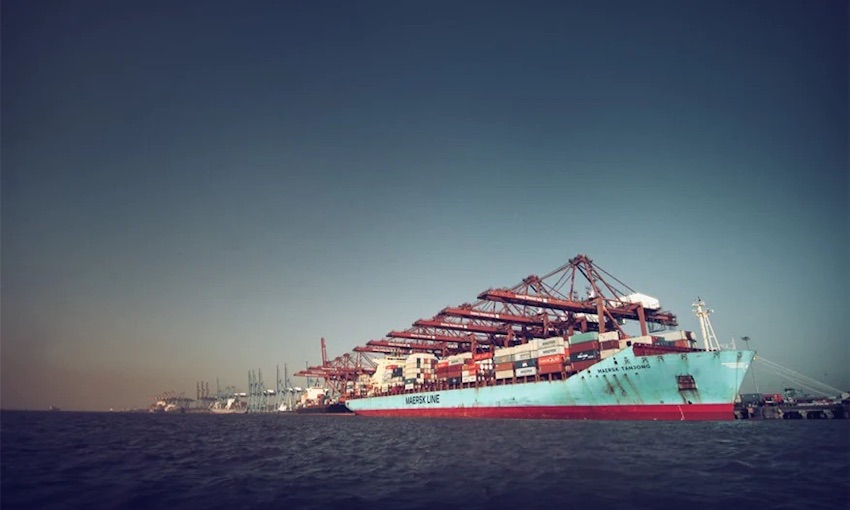SHIPPING line Maersk is re-designing its ocean network in West and Central Asia that connects countries including India, Bangladesh, Sri Lanka, Pakistan, United Arab Emirates and Saudi Arabia to the world.
The changes in network are primarily aimed at improving speed to market, providing higher predictability and offering more flexibility to customers’ supply chains.
Mads Skov-Hansen, head of liner operations cluster, Maersk West and Central Asia said, “Since the beginning of the COVID-19 pandemic, supply chains have experienced a perfect storm.
“This prompted us to re-design our ocean network to… make our customers’ supply chains more resilient.”
The new ME4 service will offer a direct coverage between Doha and North Europe, thus improving speed to market by up to five days and by up to six days from Jebel Ali to West Africa for majority of customers.
The ME3 service connecting fresh produce exporters from Pakistan to Russia will see an improvement in transit times. This will further reduce wastage of the fresh produce by maintaining its integrity through end-to-end cold chain logistics offered by Maersk in Pakistan.
The FI3 service will change from fortnightly to weekly giving frequent options for importers getting cargo from Far East into North India.
The ME7 service will connect South India’s lifestyle, retail and automotive manufacturing sector directly to Europe. The cargo will thus flow smoothly without getting affected by unforeseen delays in case of congestions.
The ME7 service will also provide a direct and regular rotation between the hubs of Colombo and Salalah, thus letting customers have a more flexible option of moving their cargo.
The new FI4 service, that combines previous Jade Express and Chennai Express, will connect South East Asia with India and Pakistan on a single direct service.
As a part of re-designing of the network, the ME6 service as well as transhipment on AE1 at Colombo will be discontinued. Customers will continue to have the options to connect their cargo on a full array of services calling West and Central Asia. The network changes will be implemented in a phased manner and will not affect the total deployed capacity in the global network.

